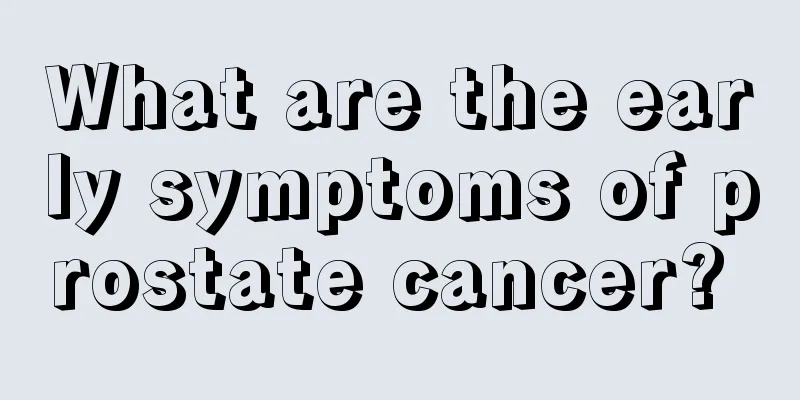What are the symptoms of esophageal tumors?

|
The biological characteristics of esophageal tumor cells are that they can continue to proliferate uncontrollably, evade the attack of the human immune system, and ultimately cause more harm to the patient and endanger his life. So, what are the serious symptoms of esophageal tumors in the late stage? The common and serious symptoms of esophageal cancer are: 1. Difficulty swallowing Since the esophageal wall is elastic and has the ability to expand, dysphagia occurs only when about 2/3 of the esophageal circumference is infiltrated by the tumor. Although early esophageal cancer is small, as the tumor grows, patients often experience esophageal wall inflammation, edema, spasm, etc., which can aggravate dysphagia. Therefore, the proportion of patients with advanced esophageal cancer who experience dysphagia is high, which seriously endangers the quality of life of patients with advanced esophageal cancer. 2. Food reflux In the late stage of esophageal cancer, food reflux often causes bleeding when dysphagia worsens. The reflux volume is not large and contains food and mucus, and may also contain blood and pus. 3. Cancer infiltration Late-stage esophageal cancer can infiltrate the esophagus and invade the mediastinum, trachea, bronchi, lungs, pericardium, and large blood vessels, causing mediastinitis, lung abscess, esophageal tracheal fistula, and fatal bleeding. 4. Cachexia In the late stage of esophageal tumors, symptoms of esophageal obstruction may appear, causing the patient to be unable to eat or drink and to suffer from systemic exhaustion. Eventually, cachexia may occur due to malnutrition. 5. Other symptoms Other symptoms are mainly related to the metastasis and infiltration of esophageal cancer cells, which vary depending on the site of metastasis and infiltration in the patient. Cancer cells metastasize to other parts of the body and may cause jaundice, ascites, dyspnea caused by tracheal compression, hoarseness due to vocal cord paralysis, dry cough, and persistent pain in various parts of the body. If cancer cells erode the aorta, fatal bleeding may occur. If there is concurrent esophageal-tracheal or esophageal-bronchial fistula or the tumor is located in the upper esophagus, cervical sympathetic nerve paralysis symptoms may also occur when swallowing liquids. That’s all we have to say about the symptoms of esophageal tumors. We hope the above information can help you. If you have any other questions, please consult our online experts. Esophageal tumor: http://www..com.cn/zhongliu/sda/sdzl.html |
<<: Unhealthy lifestyle is the culprit of lung cancer
>>: Why are lung tumors increasingly common in women?
Recommend
Chinese medicine treatment of esophageal cancer
What are the Chinese herbal medicines that can tr...
Can renal tuberculosis be cured?
Renal tuberculosis can be treated, especially now...
What to do if you feel dizzy and have stomach discomfort
Dizziness and stomach discomfort are common sympt...
How do joint cysts form?
Joint cyst is a relatively common joint disease, ...
Beware of the early signs of colon cancer
In most people's minds, cancer seems to be an...
Purpose of arterial blood sampling
In order to cooperate with the treatment of some ...
What to do about hair loss? Press the “hair-generating point” frequently
Hot weather and strong ultraviolet rays will hind...
How to deal with acne on the forehead
I believe many of my friends have a certain under...
Which is better, thread sculpture or prosthetic rhinoplasty
The nose is the most obvious part of the human fa...
Fat chin augmentation
If a person has an ugly chin, it will also affect...
What is the cause of spinal degeneration
The spine is an important part of our body. It ha...
What are the benefits of getting more sun?
Many elderly people have had this experience, tha...
Lung cancer diagnosed without any pain or itching? There are 3 types of marks on the hands in the middle and late stages. I hope you don’t have any of them!
When it comes to lung cancer, most people are afr...
What should I eat during chemotherapy for liver cancer? See the doctor's advice on diet during chemotherapy for liver cancer
In the middle and late stages of liver cancer, ch...
Symptoms of gallbladder cancer at different stages
What are the symptoms of gallbladder cancer patie...









